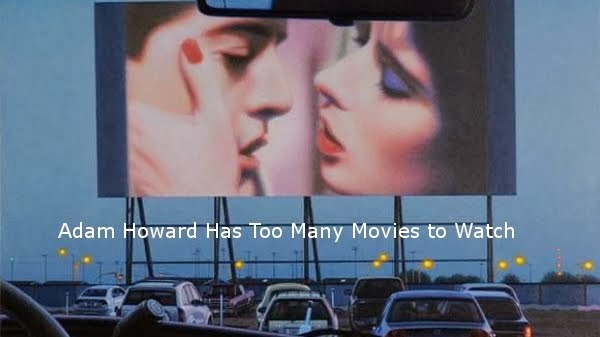Yes, there are still two parts to go which could completely redefine the message and my perception of Lynch's new masterwork, but I've seen enough of it to feel I can make some assessments.
First off, I know this is a movie blog and that Twin Peaks: The Return is technically a TV show, but one of Lynch's many revolutionary acts over the course of his career was to bring movie-level quality to the world of television -- from casting to cinematography and special effects -- so in my mind his world as a film director and TV showrunner are permanently intertwined.
 There is also the basic truth that the last thing fans of the original series saw of any of these iconic characters was in Lynch's much maligned (and more recently reappraised) 1992 film, Twin Peaks: Fire Walk With Me. Part of the mystery of The Return -- which has been years and many false starts in the making -- was what it would be.
There is also the basic truth that the last thing fans of the original series saw of any of these iconic characters was in Lynch's much maligned (and more recently reappraised) 1992 film, Twin Peaks: Fire Walk With Me. Part of the mystery of The Return -- which has been years and many false starts in the making -- was what it would be.Now that diehard devotees like me have experienced much of it, one thing is certain, it's far more an extension of the dark, sinister style of the 1992 feature film, than the quirky, charming nature of the weekly series that briefly aired on ABC.
Since this iteration airs on Showtime, which allows for copious amounts of violence, profanity and explicit sexuality, that tonal shift actually makes a lot of sense. But more importantly, like the film, and unlike the TV show (which had many directors and writers over its two year run), The Return is singularly the vision of Lynch (along with his writing partner and co-producer Mark Frost).
Many critics have said this new series is a prime example of Lynch being Lynch. And it certainly has included all the tropes that his fans have come to know and love: jarring violence juxtaposed with wacky humor, an affection for 1950s and 60s Americana, a maddeningly slow pace at times, mysticism, over-the-top acting, deeply earnest emotion and lots and lots of moody music.
As with everything Lynch related, it's not for everyone's tastes, but for fans of his work this series has been like a gift that keeps on giving and its feels like something akin to a mission statement or culmination of all his previous work.
Lynch has made very few feature films since his career began forty years ago. He has never had anything close to a commercial hit. Even his films that crossed over somewhat -- Blue Velvet and Mulholland Drive -- were oddball curios which only appealed to the indie film connoisseur. In fact, Twin Peaks has been the only true success from a commercial perspective of his career.
The show had and continues to have enough of a following that Showtime was willing to plunge a substantial amount of money into letting Lynch go hog wild for 18 hours. When he briefly departed the show over creative differences the uproar was so loud from fans that he was brought back almost immediately with promises that the show would reflect his vision only and not the network's.
With that great power, Lynch has milked every minute, perhaps keenly aware that he may never get the opportunity to do this kind of filmmaking ever again. He hasn't made a feature in 11 years, and while that may be by choice, it may also be a reflection on how hard it might be for someone like him to secure financing.
As much as The Return is a tribute the fan of Twin Peaks, its characters and actors -- some of whom have passed away sadly in the intervening years -- it is also a paean to a certain kind of iconoclastic filmmaking, which has fallen out of fashion in this area of competently made but somewhat soulless action spectacles which dominate the box office and than just as rapidly evaporate from our memory banks.
I will never forget the impact that Twin Peaks has had on me past and present. It's just not my favorite TV show of all time -- its also indicative of what I think great art should be -- involving, challenging and full of endless possibility.


















